Henpecked nation: how the people of Minangkabau, who call themselves descendants of the Macedonian, live
The Minangkabau are a people living on the large Indonesian island of Sumatra, part of the Greater Sunda Islands group. These people believe that they are descendants of the youngest son of Alexander the Great, and their religion is a bizarre cocktail of Hinduism, Islam and pagan beliefs. But the most interesting thing is that the Minangkabau have been living in a strict matriarchal system for many centuries, in which men are just labor and participants in the reproduction process.
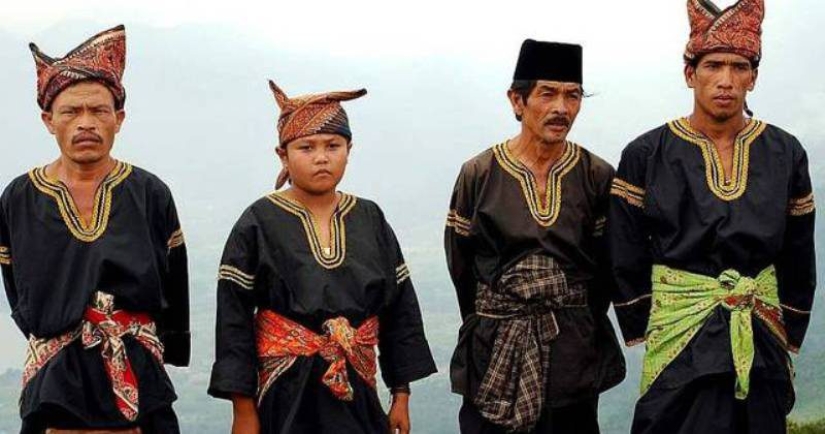
The name of this people comes from the words "minang kabau", which literally means "to defeat the buffalo" in the local language. An old legend says that when in the XIII century the warlike inhabitants of the neighboring island of Java attacked Sumatra, local elders offered to solve the issue without bloodshed - a duel of two buffaloes.
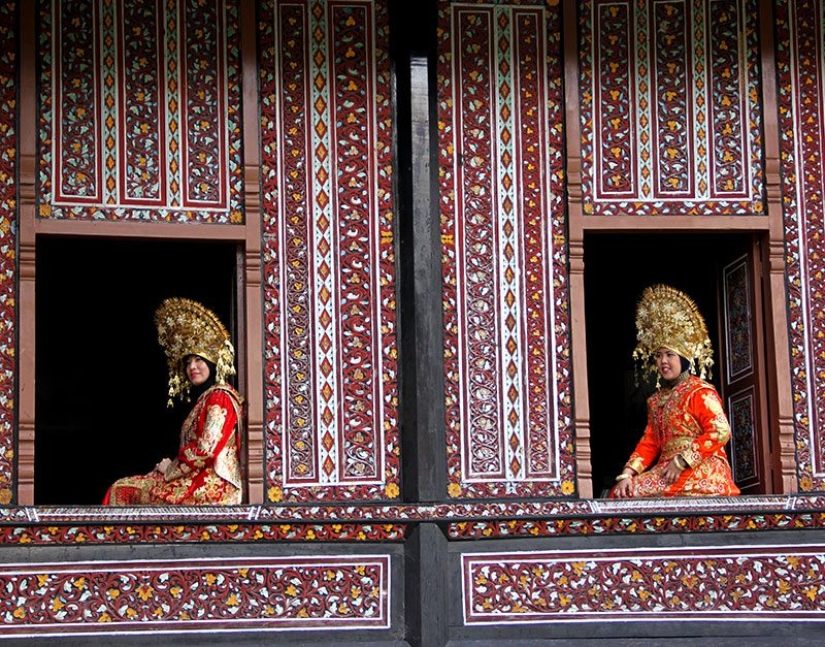
The Javanese put up a mighty animal with huge horns, and the Sumatrans put up a puny calf that made the enemy laugh. But the cunning ones tied sharp blades to the horns of the animal, and before the fight they did not let him near his mother. At the very beginning of the fight, the calf rushed to the opponent in search of an udder with milk and cut open his belly with knives. The Javanese were forced to recognize the enemy's victory and retreated.
The social system of minangkabau is based on maternal childbirth, called sarapui - the fruits of one womb. Husbands in families are considered aliens and are limited in their rights. They cannot inherit property and are called somewhat disparagingly - "orang sumando", that is, an alien.
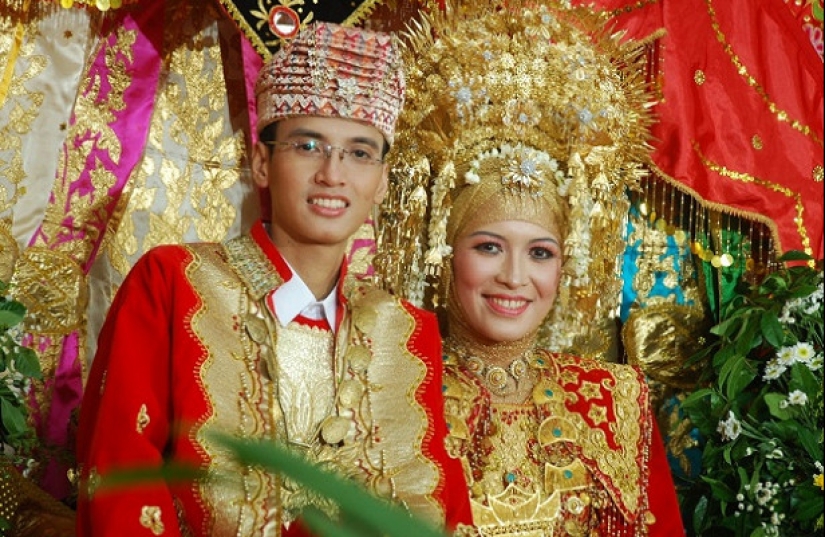
Immediately after the marriage, the husband lives in his wife's family, but then leaves. They visit their second halves only at night, when no one sees them. A woman can easily terminate such a marriage – to do this, you just need to complain to relatives that her husband takes poor care of her or earns little.
The decision in such a divorce process is made by the mother-in-law – she simply forbids her daughter's husband to come to their house and this means the dissolution of the family union. Most men of Minangkabau do not have their own home, farm, or savings and are completely dependent on their woman's family.
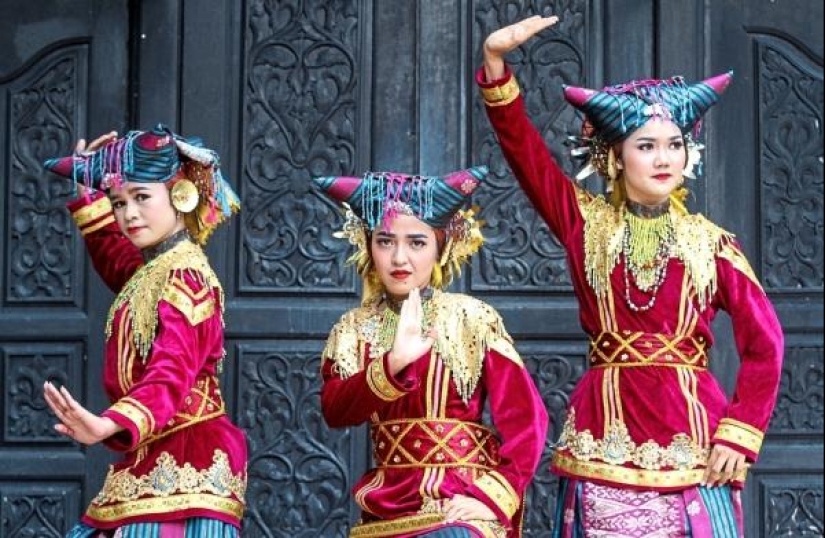
Young unmarried guys and divorced men all live together in a kind of hostel - surau. For many, this not too cozy place becomes a home for life – the ladies choose their husbands themselves and if no one likes a man outwardly or because of his character, then surau will be his only home for the rest of his days.
Before getting married, Minangkabau women make detailed inquiries about their chosen one in order to find out the slightest nuances of his biography. If the potential bride and her relatives are satisfied with everything, then matchmakers are sent to the men's house.
"Paradise is under the heel of the mother" - so says one of the most famous sayings of this people. Today, many boys and girls of Minangkabau protest against mothers interfering in their personal lives, but the reverence of parents is still very strong. Many guys are fleeing from the customs of their people to other islands of the archipelago – Java, Padang and Medan. They think they will find happiness in foreign lands, because they have absolutely nothing to lose at home.
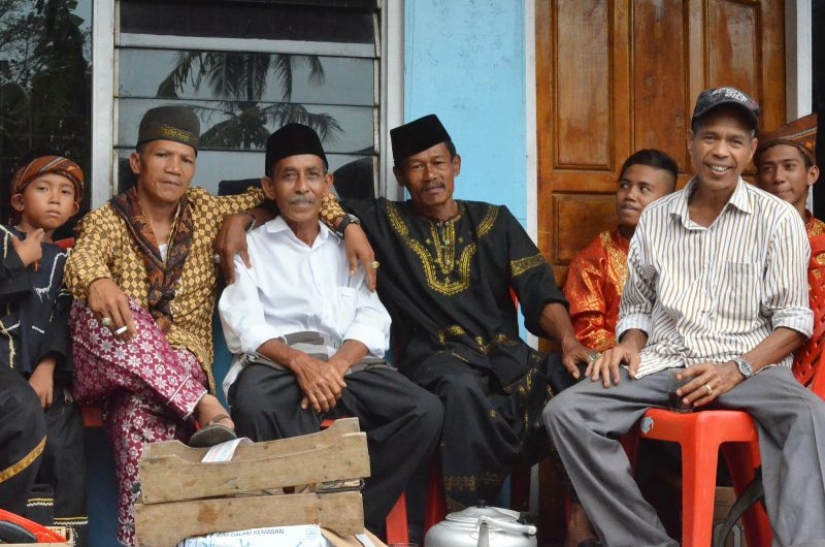
"There is a public house everywhere," the fugitives from Sumatra reason sensibly and often find what they were looking for. Hardworking, modest and quick-witted Minangkabau find their place in a foreign land even in conditions of unemployment.
Representatives of this people often hold senior positions in Indonesian and Malaysian government bodies, among them there are many writers, poets and artists. Minangkabau chefs are in great demand – traditional Sumatran dishes with spices are considered by many to be real works of culinary art.
This situation has led to the fact that there are fewer and fewer men in the villages of Minangkabau and the hour is near when women will have no one to push around, as well as from whom to give birth to children. Because of this, some islanders are forced to compromise. They get married and, contrary to the customs of their people, leave their husband in the family. Since he does not have the right to live permanently in the ancestral home, he has to build a separate "male" house on the territory of the estate.
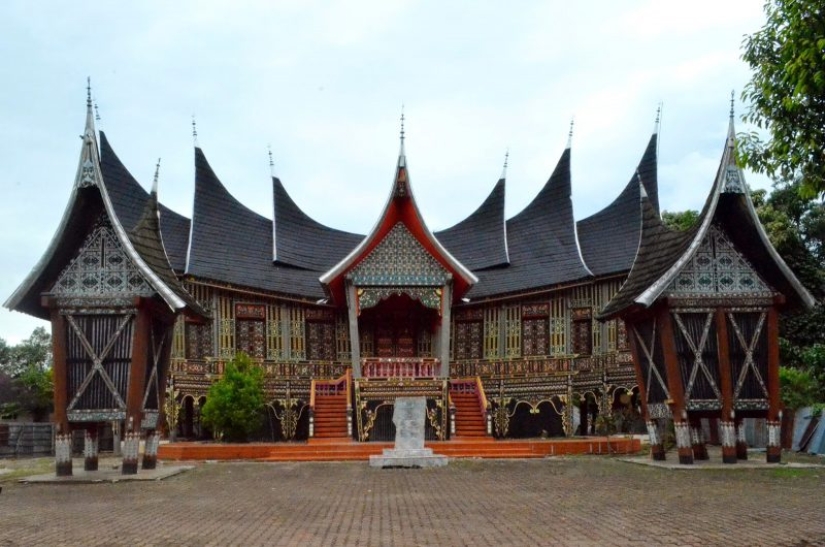
Not so long ago, boys and girls of this people began to go to the same schools, where they are taught not only spiritual truths, but also general education subjects. In modern educational institutions, Minangkabau children are surprised to learn that there are peoples in the world who live by simpler and more convenient rules, without discrimination and humiliation of men.
Experts believe that in 2-3 generations there will be no trace of the traditions of this Sumatran people. From the point of view of the struggle for men's rights, this is not bad at all, but the medal has a downside. Alas, along with the matriarchal way of life, these people will lose their faith and culture, which are also based on unquestioning reverence for the mother-parent.
All the main customs and ceremonies of minangkabau, one way or another, are connected with the feminine principle. A special place in the traditions of this people is occupied by the Mother of Rice - which is personified by the best seeds for planting. This selected seed is planted in the best place of the field, surrounding it with ordinary rice. All planting and care operations are performed by the Mother of Rice – a woman with loose hair, who, while the seeds are sprouting, constantly bathes near them so that the harvest is plentiful.
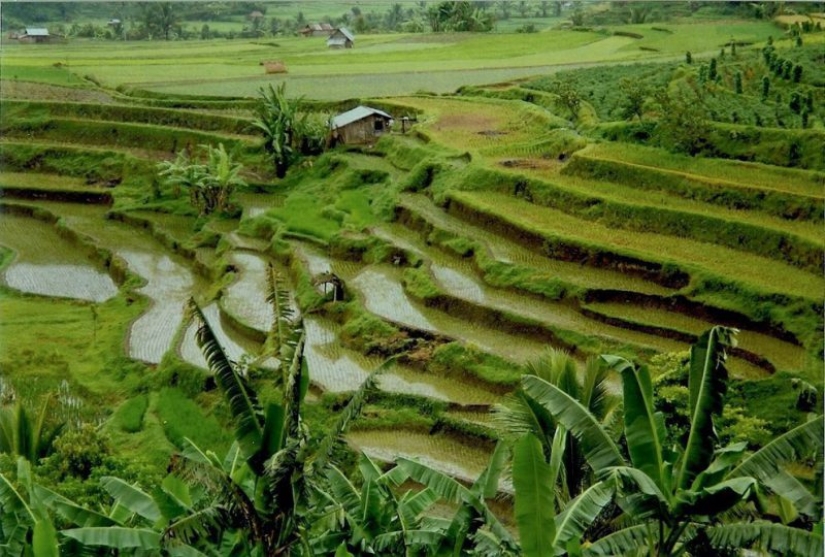
When it comes time to transplant seedlings from the nursery to a large field, the priestess says: "Saning Sari, may you not be afraid of lightning or passers-by! Let the sun be a joy to you, let the storm not disturb your calm and let the rain wash your face!". After that, all the rituals associated with the harvest are performed by a local datuk sorcerer. He also determines by one of the signs known to him the time when it's time to harvest.
Datuki are male minangkabau shamans with the widest range of responsibilities. The word of the shaman is the law for everyone and in remote areas he is considered the only authority. Perhaps, this is the only responsible role in the society of this people, which is entrusted to the representatives of the stronger sex. These representatives of the cult can own property and manage their money. The chosen ones become Datuk – each of them undergoes serious training, during which he must also spend some time on the sacred mountain all alone.
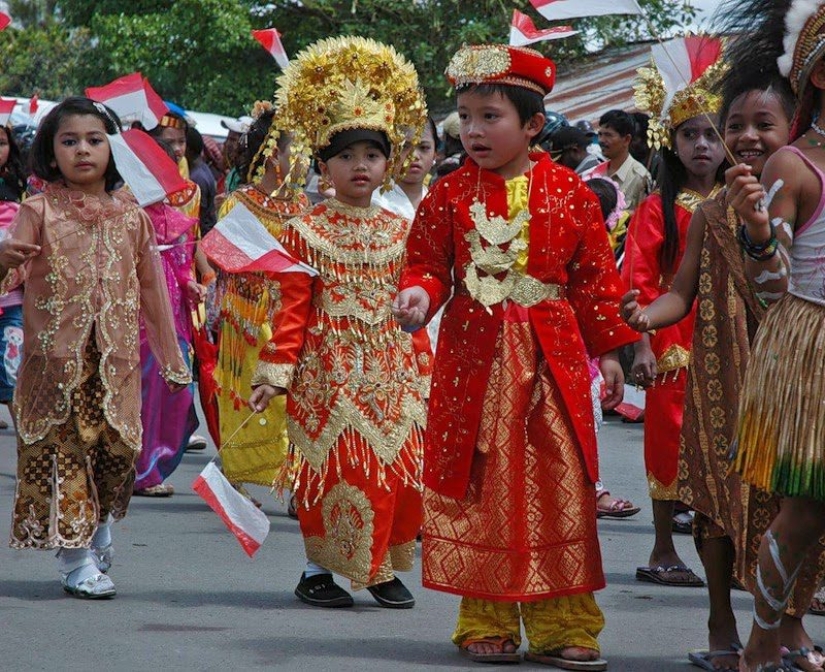
Datuk's henchmen are the souls of the dead, who help him with advice and predictions. At the same time, nothing prevents the sorcerer from professing Islam and reading during the rituals along with the Hindu texts of the surah from the Koran. It is in the legends transmitted from one datuk to another that strange beliefs are contained that the Minangkabau came to Sumatra from the far West together with the great army of Alexander the Great and their ancestor is the son of the great conqueror.
Recent articles

It's high time to admit that this whole hipster idea has gone too far. The concept has become so popular that even restaurants have ...

There is a perception that people only use 10% of their brain potential. But the heroes of our review, apparently, found a way to ...

New Year's is a time to surprise and delight loved ones not only with gifts but also with a unique presentation of the holiday ...